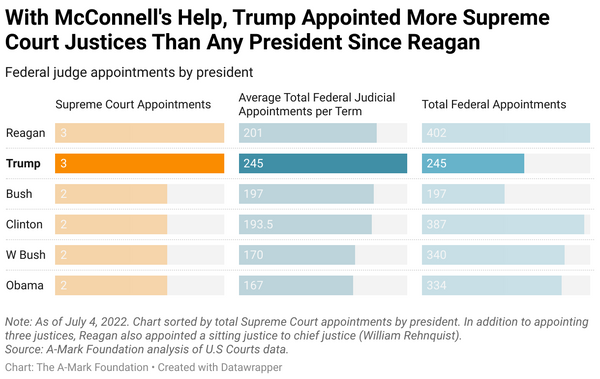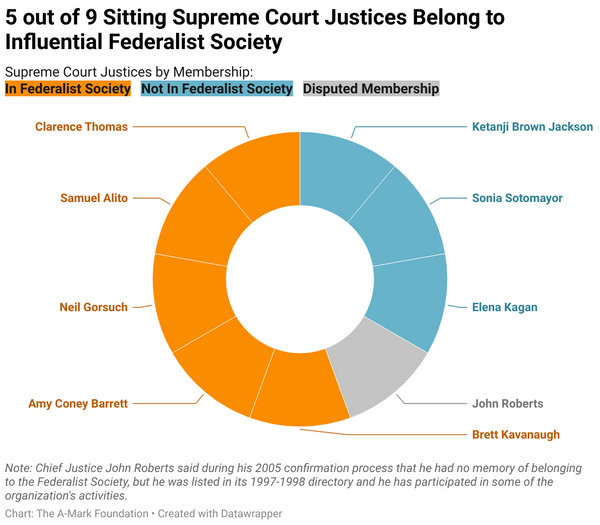August 3, 2022 - Santa Monica, Calif. — Following the polarizing Supreme Court decision to overturn Roe v. Wade, the nonpartisan A-Mark Foundation published a report examining the role that Sen. Mitch McConnell has played in reshaping our federal judiciary.
As it did with its report examining claims of a stolen 2020 election, A-Mark Foundation is distributing an online quiz to “gamify” the McConnell report, enabling Americans to test their knowledge of the senator’s impact on the judiciary. Quiz takers may elect to enter a contest to win a $500 Amazon gift card.
The A-Mark Foundation’s report includes background on Sen. McConnell’s political career and how his political views changed over time, alongside quotes from people familiar with his goals and from his own memoir, "The Long Game." A-Mark also compiled data on judicial appointments for all presidents since Ronald Reagan, including statistics on American Bar Association qualification ratings.
“Sen. McConnell has spoken openly about his goal to transform the judiciary,” said Rob Eshman, CEO of the A-Mark Foundation. “This study documents how he managed to do it, and the extent of his success.”
The report charts the evolution of McConnell’s view on judicial appointments. As a young Senate staffer, he played a role in the 1970 Supreme Court nomination process that led to the eventual appointment of Harry Blackmun, a Nixon appointee who would go on to write the Court’s majority opinion in Roe v. Wade.
At that time, McConnell wrote that senators should only consider a Supreme Court nominee’s qualifications, not any political issues. Almost 50 years later, McConnell disavowed this stance: “Upon reflection, everything I said was wrong,” he said in a 2019 speech.
Sen. McConnell, the longest-serving Republican Senate Leader in history, became majority leader during the last two years of Barack Obama’s presidency. He used that position to slow the pace of Obama’s judicial appointments and refused to allow a hearing on Obama’s nomination to fill the Supreme Court vacancy left when Antonin Scalia died in February 2016.
When Donald Trump became president in January 2017, McConnell worked with him to seat 245 federal judges in four years (the most in a four-year term), including three Supreme Court justices. Barack Obama, by contrast, had 334 appointments in eight years, an average of 167 per term. President Trump appointed 54 Circuit Court appellate judges in one term, just one fewer than President Obama in his two terms.
Several rulings from the Supreme Court in 2022 illustrated the impact of McConnell’s efforts to let Republican presidents fill vacancies in the federal courts, including wins for the conservative movement in areas such gun rights, religious rights, and limits on environmental regulations.
For more information on the A-Mark Foundation, visit amarkfoundation.org.


